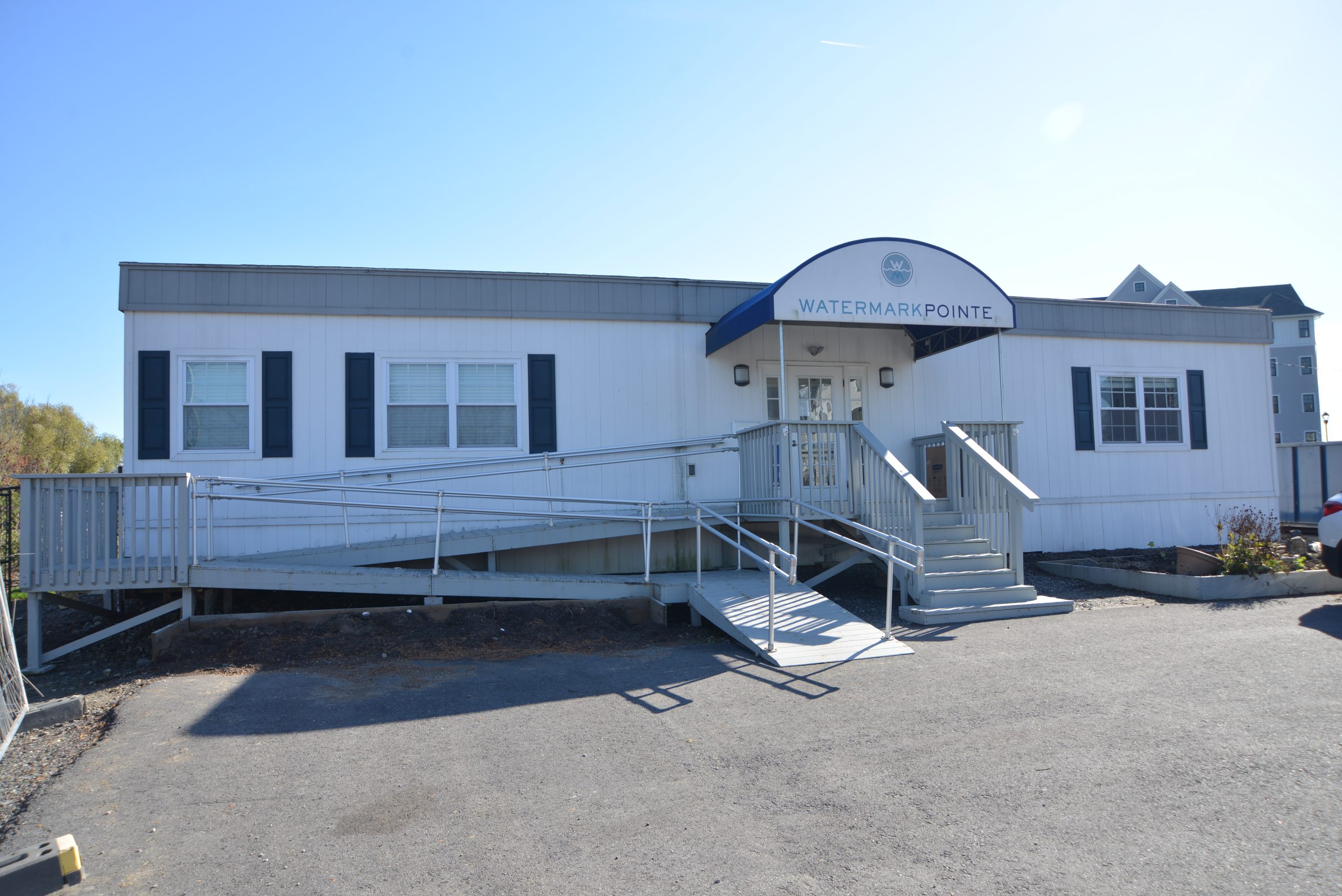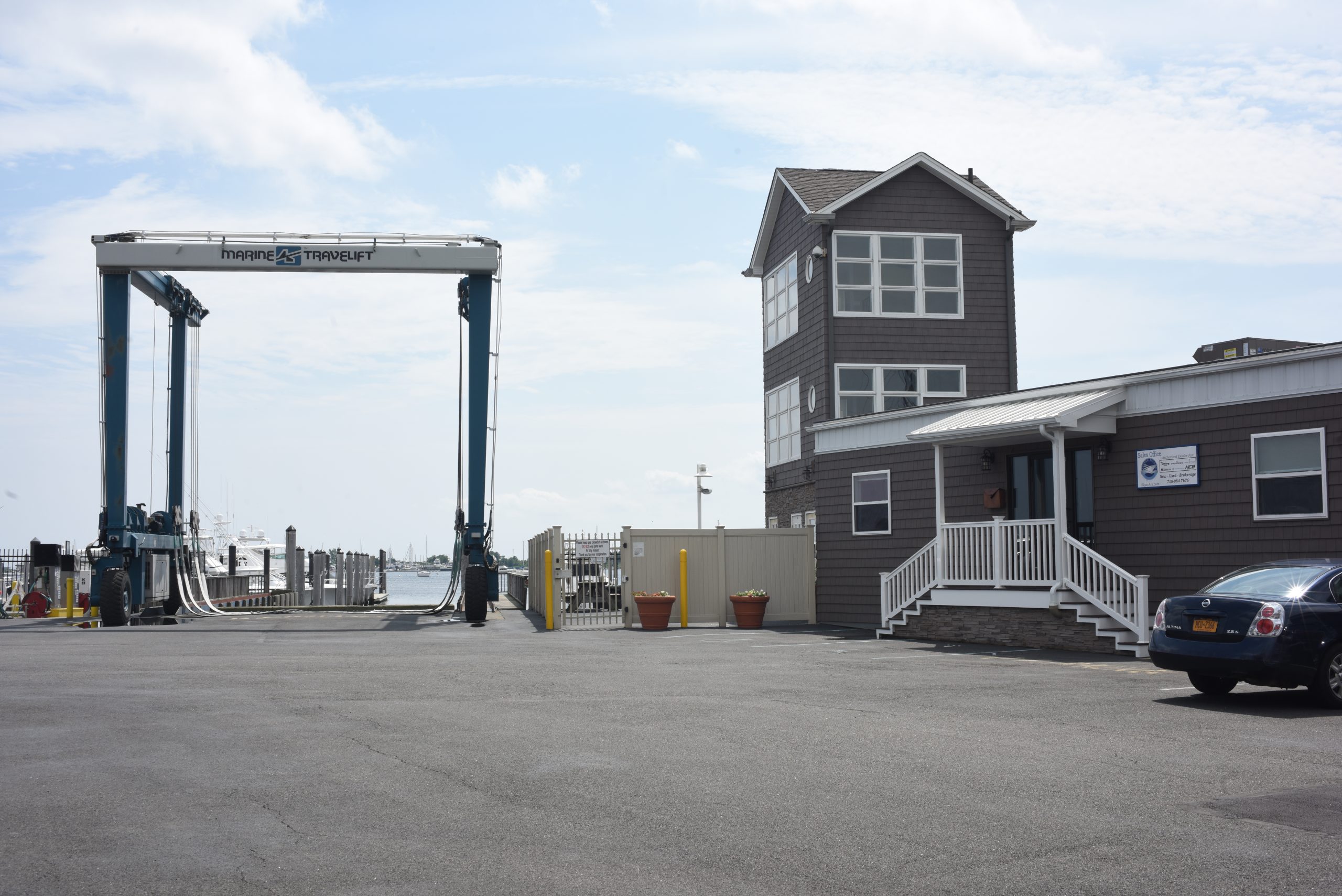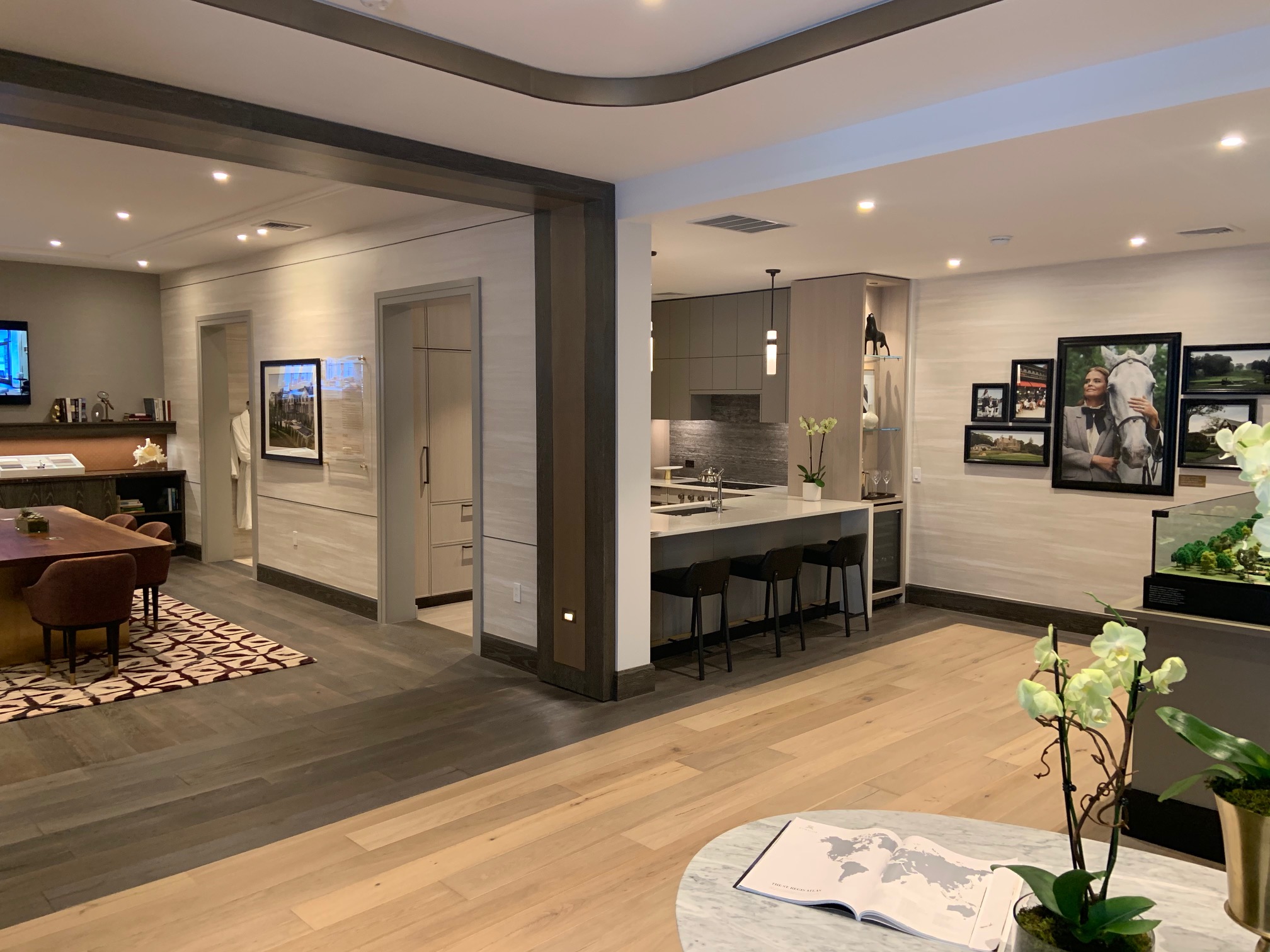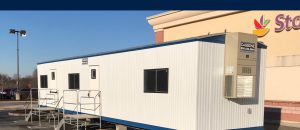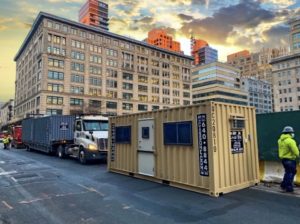Modular Solutions for National and Local Government Offices
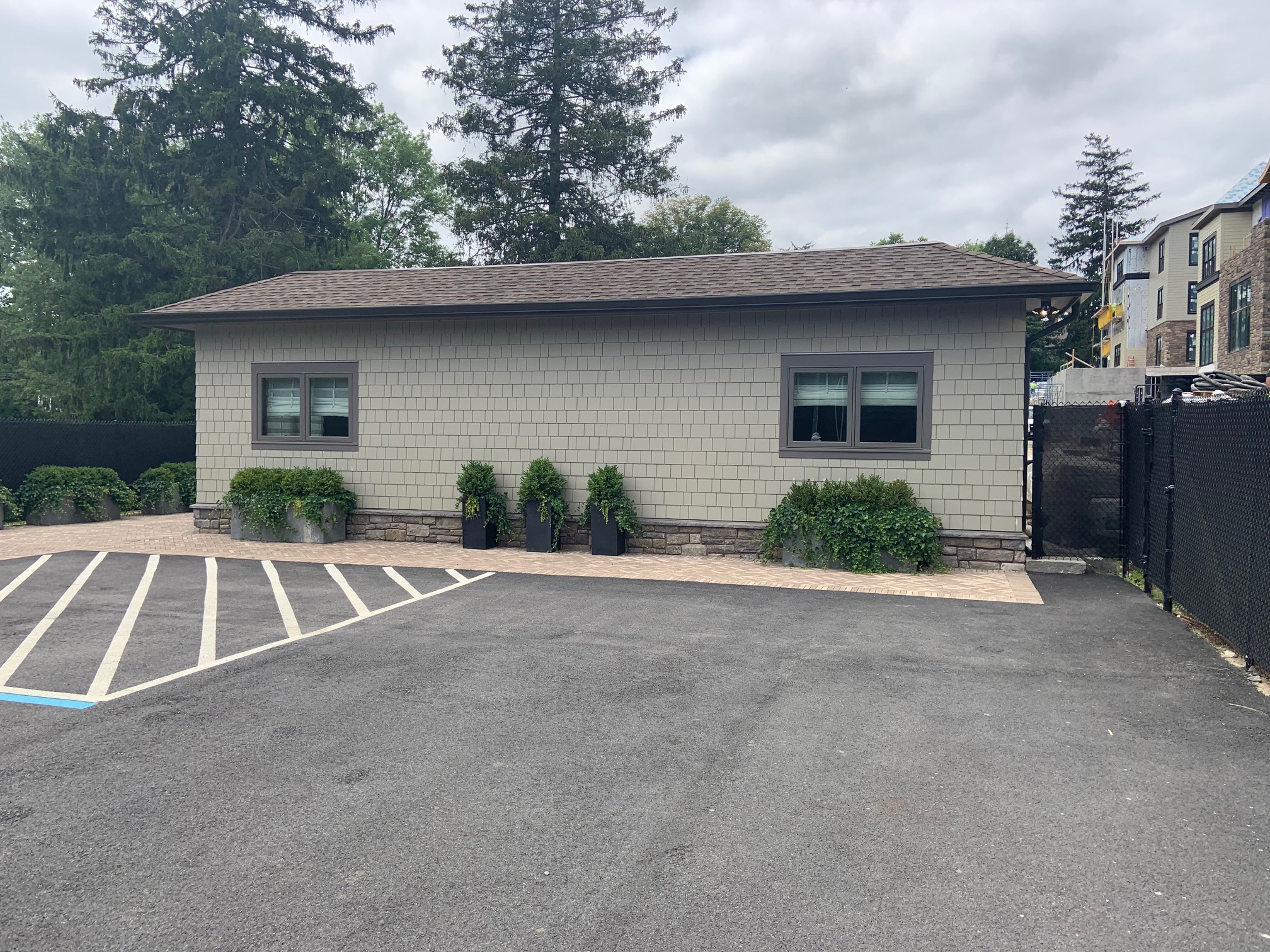
Various government agencies depend on flexible short- and long-term space solutions to function smoothly. This can be on the national or local level and can be for a wide array of situations. The need for extra space becomes particularly pronounced if an office has outgrown its existing space or if there’s a short-term project that requires setting up a temporary office. In any such scenario, modular buildings, office trailers, container offices, and storage containers make way for high-quality and cost-effective alternatives.
Temporary and Permanent Government Buildings
Modular buildings are typically best-suited when there’s a long-term or permanent need for extra space. Office trailers and container offices, on the other hand, work better if your requirement extends to a shorter period of time. Depending on your requirements, you may get a modular building, an office trailer, or a container office to serve as:
- Command centers
- Project management offices
- Emergency shelters
- Restrooms and break rooms
- Cafeterias
- Laboratories
- Training facilities
- Healthcare clinics
- Recreational facilities
- Correctional facilities
Container offices often find favor with the Department of Parks and Recreation (DPR), and this is also the case with modular buildings when requirements extend to longer periods of time. Mobile trailer offices are usually the go-to solution when mobility is a factor. Storage containers, on the other hand, often find their way to parks, correctional facilities, and trash/recycling centers.
Modular Buildings, Mobile Office Trailers, and Container Offices
While modular buildings, mobile office trailers, and container offices work well when it comes to addressing the need for extra space in a quick and effective manner, each comes with its unique traits.
Modular Buildings
Modular buildings work well when government agencies are looking at long-term or permanent space solutions. These buildings are constructed off-site in production lines under controlled conditions, and you get to choose from an array of floor plans. When compared to brick-and-mortar construction, you may look forward to reduced construction time, as highlighted in the modular construction report by McKinsey. Several government agencies need to follow stringent guidelines to meet project-specific space requirements, and modular construction ensures delivering exact square footage.
Setting up a modular building is more cost-effective than constructing a regular brick-and-mortar structure. The process involves:
- Fabrication. A controlled production environment along with a material staging system helps reduce construction waste and deliver high levels of fabrication precision.
- Transportation. Carriers who specialize in transporting modular buildings ship fabricated modules to desired locations. Delivery might take place in phases for large projects.
- Installation. General contractors who specialize in modular construction typically oversee the installation process. The installation involves setting up mechanical, electrical, and utility connections.
Mobile Office Trailers
Mobile office trailers are prefabricated in factories and come with a wheels-and-chassis trailer base that makes them easy to relocate. Setting up mobile trailers is fairly straightforward. Since these units are elevated from the ground, you need to use stairs or ramps, which typically come at an added price. Since portable offices come with trailer bases, stacking them on top of each other is not an option. Their lifespan is usually lower than that of container offices.
Container Offices
Container offices are made using heavy-duty shipping containers. These units come with advanced insulation systems, which make them perfect to use in harsh weather conditions. Stacking up to three containers on top of each other is possible, and there is no limit to how far you may go horizontally. If required, it is possible to relocate a container office to a different location. Setting up a container office is not as easy as setting up a mobile office trailer.
The iBox
Cassone’s iBox serves as a perfect example of what you may expect from the latest in temporary government modular buildings. This module comes with a lifespan of at least 10 years under harsh conditions, and it can go through a minimum of three assemblies and disassemblies each during its lifespan. Stacking up to three units vertically is possible, and you may go as far as you’d like diagonally. Each unit includes a power distribution box, power cables, a light switch, power outlets, communications outlets, and fluorescent light fittings.
Making the Case for Government Agencies
Portable office buildings in their varied forms are ideal for use by government agencies to serve specific purposes. For instance, they can be used as temporary or permanent field offices in places where traditional brick-and-mortar construction is not possible. Agencies that need to respond to national emergencies may use them as command centers and first-aid stations. They can also be used as administrative offices, law enforcement offices, and medical centers.
Even with tight budgets and the possibility of confidential project requirements, government agencies from across departments already benefit by using modular buildings, mobile office trailers, container offices, and storage containers. These include the military, parks and recreations, and the police, as well as fire and emergency medical services (EMS). Over time, it’s only fair to expect other departments of the government to turn to portable office buildings and storage containers to meet one space requirement or the other. These include, but do not limit to:
- Agriculture
- Commerce
- Defense
- Education
- Energy
- Health and Human Services
- Homeland Security
- Housing and Urban Development
- Justice
- Labor
- Transportation
The Ability to Customize
No matter whether you’re looking at modular buildings, mobile office trailers, or container offices, you get considerable freedom to customize. For example, you may get a modular building to come with all that’s required to serve as an administrative building, a correctional facility, or a healthcare center. Besides, modular buildings come with different floor plans extending to thousands of square feet.
Container offices usually come with heating, air conditioning, VCG interior walls, desks, file cabinets, plan tables, and phone/data lines. Similarly, mobile office trailers come equipped with heating, air conditioning, fluorescent lighting, and electrical systems.
Customization options can come in the form of furniture, insulated walls, shelving, pipe racks, roll-up doors, heavy-duty cargo door locks, galvanized steel doors and frames, panic hardware, lockboxes, and turbine vents.
What About Storage Containers?
Different government agencies can make use of storage containers to store an assortment of supplies, thereby making more room in their existing buildings. Made using heavy-duty shipping containers, these units are weather-, fire, and vandal-resistant. Much like container offices, you may get a storage container to meet a short-term or long-term requirement.
Government offices that wish to store items that are sensitive to hot/cold temperatures might benefit by looking at what climate-controlled storage containers have to offer. Such containers can also be used to good effect when storing hazardous or flammable materials. Setting up storage containers is fairly easy, as is scaling up or down based on changing requirements.
Agencies that have to deal with a shortage of space may consider stacking up to three storage containers vertically. If there’s a need to relocate a storage container at a later date, that’s possible too.
Should You Buy New or Used?
If you’re looking at buying a mobile office trailer, a container office, or a storage container, you have the option of getting a new or used unit. If you’re looking at short-term use, renting one might be in your best interest. However, buying might work better for you if you’re in it for the long haul and if budget permits. Bear in mind that used units are typically customized according to the needs of their previous owners, and while it’s possible to customize used units, you might not be able to as far as you could with a new unit.
Buying a Used Office Trailer, Container Office, or Storage Container
If you plan to buy a used office trailer, a container office, or a storage container, it’s important to pay attention to its overall condition. You should ideally ask the seller about the unit’s age, how many previous owners it has had, how many times it has been relocated, the weather conditions it has faced, and whether it has been damaged extensively.
You might also want to take a look at how the dealer rates across different parameters. For instance, if you want your unit to be customized, you need to determine if the dealer would be able to handle all your requirements. Going through online reviews and customer testimonials to find out how the dealer fares when it comes to providing after-sales support is a good idea.
Should You Buy or Rent?
No matter whether you need a modular building, an office trailer, a container office, or a storage container, you get to choose between buying and renting. It is common for government agencies to get such units to meet short-term requirements, which is why renting is the more common alternative. For example, if the need limits to providing one-off disaster relief in a particular area, renting a unit might be the way to go.
If your requirement for an office trailer, a container office, or a storage container ranges from 6 to 24 months, renting a unit might be better for you. If your requirement is more long-term, you may consider buying.
When it comes to renting modular buildings, you may consider renting a small building even for a few months. However, if you need a large modular building, the company you deal with will typically require that you rent for at least a year to cover its costs. If you plan to use a modular building for more than three years, buying might work better for you.
When you go the renting way, the responsibility of your unit’s delivery, installation, maintenance, and removal rests with your dealer. If you buy, you may expect your dealer to deliver and install the unit, but its maintenance and subsequent removal/relocation will be your responsibility.
- Maintenance: It’s not uncommon for modular buildings, office trailers, container offices, and storage containers to need some type of repair work from time to time. When you rent any such unit, you may fall back upon your dealer to address any problem you face.
- Flexibility: If the unit you purchase needs to be relocated from one place to another, you’ll need to use the services of a transportation company. When you rent or lease, you simply need to contact your dealer to take care of the relocation. This is also the case when it comes to the unit’s eventual removal from your premises.
Examples of Modular Buildings for Government Use
There is no dearth of examples when it comes to modular buildings being used by different national and local government agencies. Here are a few.
- The Marine Corps Base Camp Lejeune in Jacksonville, NC, has a hurricane response swing space that comprises seven unique modular buildings, totaling 14,000 square feet.
- The Tyndall Air Force Base, FL, has modular fire station support buildings in the form of an administrative building (3,600 square feet), an operations and dining building (5,760 square feet), three bunkhouses (1,904 square feet each), and a storage container (1,280 square feet).
- The Georgia Emergency Management and Homeland Security Agency (GEMA/HS) used 42 shipping containers converted into two temporary 24-bed hospitals, with 6,750 square feet per facility, to deal with the COVID-19 pandemic. These modular hospitals came replete with HEPA-filtered dedicated outdoor air systems, nurse call stations, and medical gas delivery.
- The FAA William J. Hughes Technical Center at the Atlantic City International Airport, NJ, has a mobile command center for its research and development team and contractors who support unmanned aircraft systems (UAS).
Conclusion
Given that various national and local government agencies face problems surrounding expansions, renovations, and new construction, modular buildings, office trailers, and container offices can serve as effective solutions. This is because setting them up takes much lesser time than traditional construction, and they also rate highly when it comes to cost-effectiveness and durability.
No matter whether it’s for the military, the healthcare department, a park, or homeland security, such units are designed to meet different needs. All you need to do is determine which of these are best suited in your scenario. If you’re unsure, you may seek advice from a modular building and container office specialist. Your dealer can also help you decide if buying or renting might be better for you.


